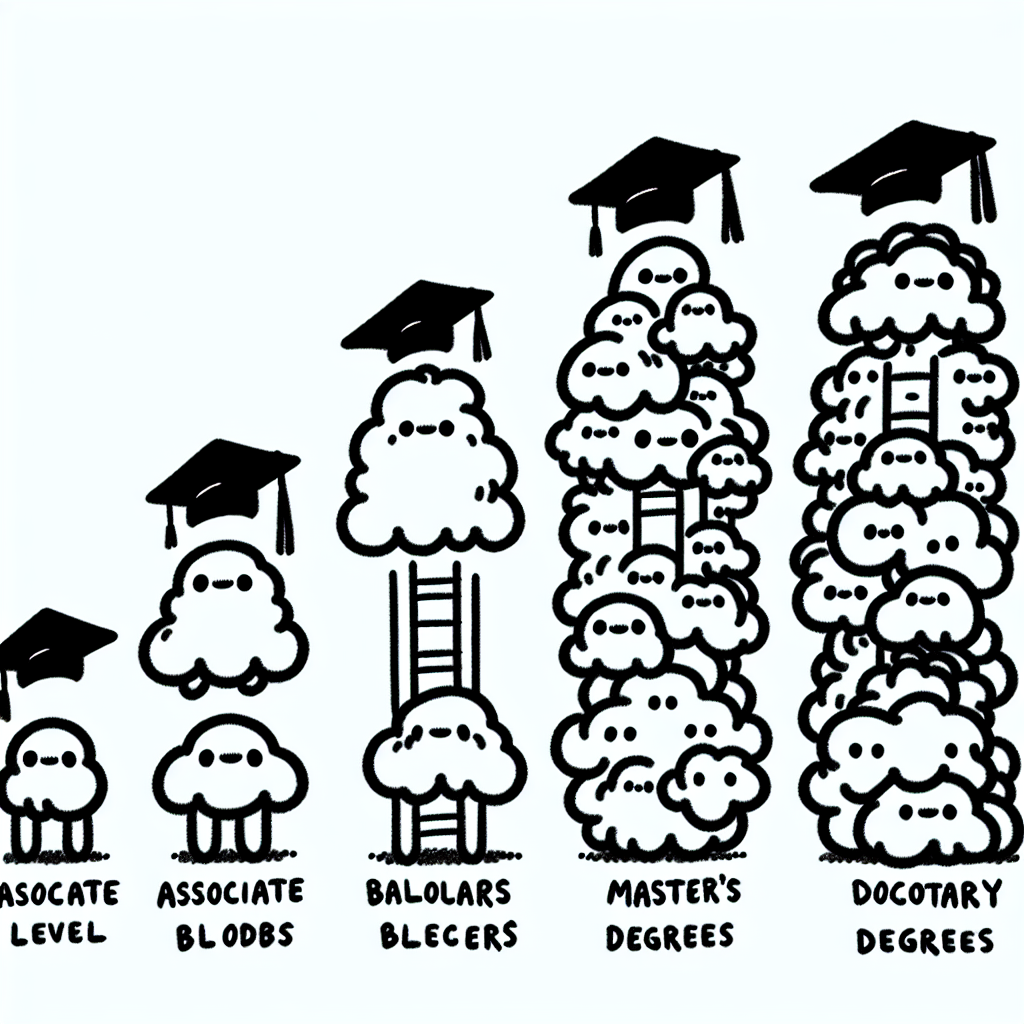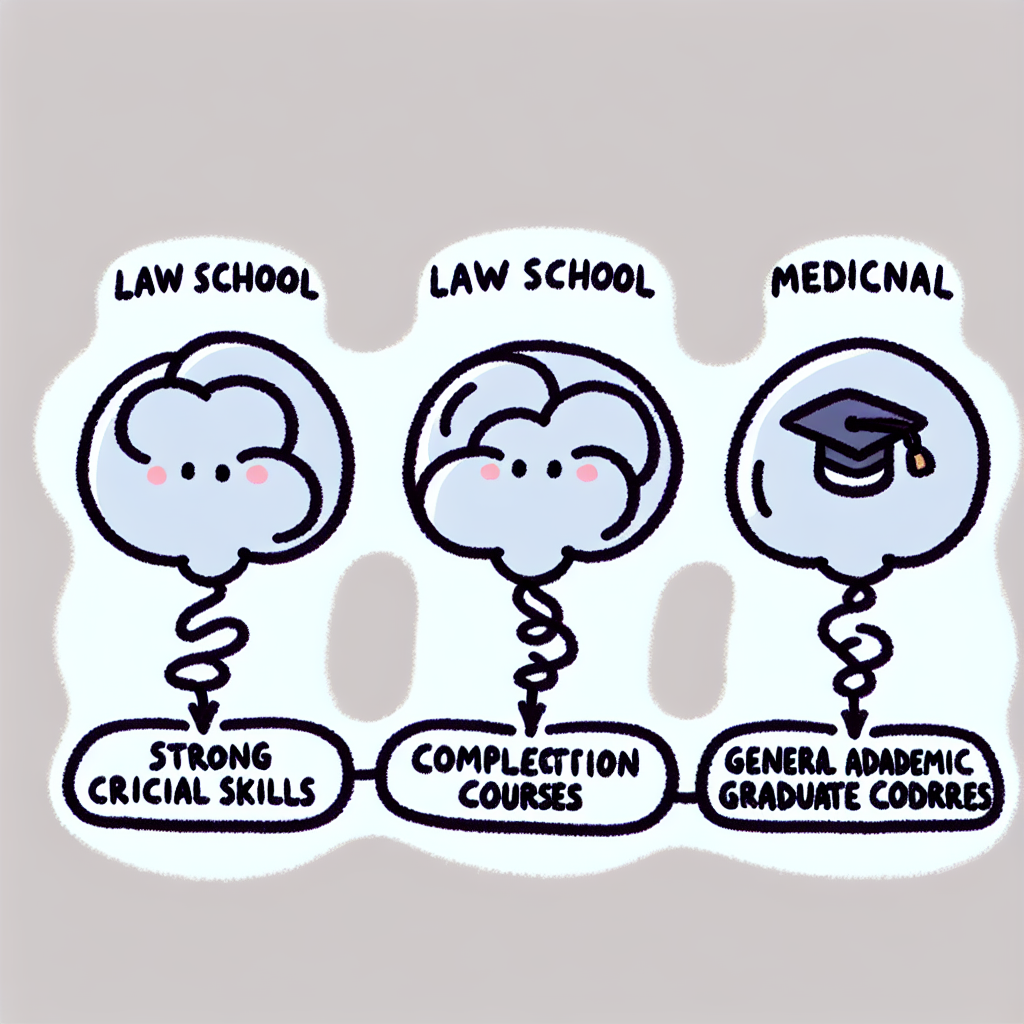Introduction: Why Understanding Degree vs Major Matters
Many students and parents often confuse the terms "degree" and "major," assuming they are interchangeable. However, understanding the distinction between a degree vs major is essential for making informed academic and career decisions. A degree refers to the qualification you earn upon completing a program of study, such as a Bachelor of Arts or Bachelor of Science. A major, on the other hand, is the specific subject area you focus on within that degree, such as biology, economics, or history.
Clarifying the difference between a degree vs major can help students choose the right educational path based on their interests and career goals. For instance, someone interested in technology might pursue a Bachelor of Science degree with a major in Computer Science, while another student might aim for a Bachelor of Arts degree with a major in Sociology. Recognizing how these elements work together can lead to more strategic decisions about course selection, internships, and long-term career planning.

What Is a Degree?
A degree is a formal certification granted by a college or university after completing a program of study at a specific educational level. It reflects a student’s academic achievement and is categorized by progressively advanced levels of education.
Definition and Structure
Degrees are structured in tiers, each representing a different stage of academic and professional development:
- Associate Degree (AA/AS): Typically a two-year program that provides foundational education, often earned at community colleges.
- Bachelor’s Degree (BA/BS): A four-year undergraduate program that offers more in-depth study in a chosen field.
- Master’s Degree (MA/MS): A graduate-level degree that usually requires one to two additional years of study beyond a bachelor’s.
- Doctoral Degree (PhD, EdD, etc.): The highest level of academic degree, often involving original research and typically taking several years to complete.
Each degree level builds upon the previous one, offering increasingly specialized knowledge and skills.
Purpose of a Degree
The primary purpose of a degree is to serve as an academic credential that demonstrates a person’s knowledge and competencies in a particular area of study. It signals to employers and academic institutions that the individual has completed a standardized curriculum and is prepared for professional roles or advanced educational opportunities. In the context of degree vs major, the degree represents the level of education attained, while the major defines the specific area of focus within that degree.

What Is a Major?
A major is a student’s primary field of study within a degree program. It defines the academic focus during undergraduate or graduate education and determines a core set of required courses centered on a specific discipline such as Psychology, Business, or Engineering.
The structure of a major typically includes foundational coursework, intermediate classes, and advanced-level seminars or labs. These courses are designed to build expertise in the chosen area and often follow a sequential format to ensure comprehensive understanding.
The purpose of selecting a major is to specialize learning toward a particular career path or academic interest. Through a major, students gain in-depth knowledge and skills relevant to their chosen field. Many majors also include opportunities for experiential learning such as research projects, internships, and capstone experiences, which help students apply their knowledge in real-world settings.
In the context of degree vs major, the major is the focused component within the broader educational framework of a degree.

Degree vs Major: Key Differences and Interactions
Scope and Focus
A degree represents a broad academic qualification awarded by a college or university. It indicates that a student has met the general requirements of a higher education program, such as a Bachelor of Arts (BA) or Bachelor of Science (BS). This credential reflects a comprehensive base of knowledge across a variety of disciplines, including general education coursework.
A major, on the other hand, is a specific area of study within that broader degree program. It represents focused subject-matter expertise and typically involves a set of required courses in a particular discipline, such as History, Computer Science, or Biology. While the degree shows the level of education, the major reveals the student's specialized academic interest.
How They Work Together
The major is nested within the degree. For example, a student might earn a Bachelor of Science in Biology, where "Bachelor of Science" is the degree and "Biology" is the major. This structure means that while all students earning a Bachelor of Science degree share a core curriculum, their individual majors dictate the specific courses they complete within that framework.
In practice, you earn a degree with a declared major. Colleges typically require students to declare a major by a certain point in their academic journey, ensuring that the student fulfills both the general education requirements of the degree and the specialized requirements of the major. This combination allows institutions to certify that graduates are both broadly educated and specifically trained in a particular field.
Understanding the distinction between degree vs major is essential for students planning their academic paths, as it shapes both the structure of their studies and the credentials they ultimately earn.

Common Degree-Major Pairings
Understanding the relationship between a degree vs major becomes clearer when looking at popular combinations that students often pursue. These pairings highlight how specific majors align with the broader degree awarded.
Popular Combinations
- Bachelor of Science in Engineering: This pairing is common for students focusing on technical fields such as mechanical, electrical, or civil engineering.
- Bachelor of Arts in Psychology: Many students interested in human behavior and mental processes choose this major under the broader liberal arts degree.
- Bachelor of Business Administration in Marketing: A typical path for those aiming to enter the business world with a focus on market research, advertising, or brand management.
- Bachelor of Science in Nursing: This degree-major combination is standard for those entering the healthcare field as registered nurses.
Pew Research Center Insight
According to the Pew Research Center, business is the most commonly held bachelor's degree, accounting for 19% of all degrees. Health professions follow, comprising 12.6% of bachelor's degrees. This reflects strong alignment between popular majors and degree types.
NCES Data
Data from the National Center for Education Statistics (NCES) also shows that 58% of bachelor’s degrees are concentrated in six fields: business, health, social sciences/history, biomedical sciences, psychology, and engineering. This further illustrates the prevalent degree vs major pairings in higher education.

Choosing the Right Academic Path
Factors to Consider When Selecting a Major
When deciding on a major, it's important to evaluate your personal interests and academic strengths. Choosing a field that aligns with what you enjoy and excel at can increase motivation and academic success. Additionally, consider how the major connects to your long-term career goals. Some fields may offer more direct pathways to specific professions, while others may require further education or training.
Job market demand is another key factor. Research which industries are growing and what skills are in demand. For instance, majors in technology and healthcare tend to offer strong employment prospects. Also, look into the degree requirements and the estimated time to completion. Some majors may require more credits or intensive coursework, which could affect your graduation timeline.
Finally, assess the flexibility of the program. Some majors make it easier to pursue a double major or add a minor, which can broaden your skill set and career options.
Understanding Degree Requirements
Each degree program includes core or general education courses that all students must take, regardless of major. These often cover foundational subjects like math, science, and writing. Beyond that, students complete major-specific credits that focus on their chosen area of study.
Electives and experiential learning opportunities, such as internships or research projects, can enhance your education and provide practical experience. Some programs also offer honors components or require a thesis, which may appeal to students interested in advanced academic work.
Gender Trends in Fields of Study
Gender disparities exist across different majors. According to the U.S. Census Bureau, engineering and computer science majors remain predominantly male, with men making up 67–90% of students. In contrast, psychology and education majors are largely female, accounting for 71–92% of enrollment. These trends can influence classroom dynamics and may reflect broader societal influences on academic choices, highlighting the importance of awareness when considering your own academic path in the context of the degree vs major decision.

Career Implications: How Degrees and Majors Influence Employment
Labor Market Alignment
The relationship between a degree vs major plays a significant role in determining where individuals land in the workforce. According to the Bureau of Labor Statistics, 63% of bachelor’s degree holders are employed in management, professional, and related occupations. This suggests that holding a degree—regardless of major—can open doors to higher-tier job categories, though the specific major may influence the exact role or industry.
Economic Benefits
When comparing economic outcomes in the context of degree vs major, the presence of a degree appears to be a major driver of income potential. The National Conference of State Legislatures reports that individuals with a bachelor’s degree earn an average of $78,000 annually, compared to $45,000 for those with only a high school diploma. While the degree itself boosts earning potential, the choice of major can further influence salary levels within that range.
Career Flexibility
The degree vs major distinction also affects career flexibility. Some majors, such as those in the liberal arts, provide a broad skill set that can be applied across multiple industries, offering adaptability in a changing job market. In contrast, majors like nursing or engineering are specialized and closely tied to specific career paths, limiting flexibility but often leading to stable employment in those fields.

Expanding Academic Horizons
When considering the topic of degree vs major, it's important to understand how students can broaden their academic experience through options like double majors, minors, and interdisciplinary programs.
Pursuing a double major allows students to earn one degree while fulfilling the requirements of two distinct majors. This path can enhance academic depth and open up a wider range of career opportunities. For example, combining a major in Economics with one in Computer Science can equip students with both analytical and technical skills, which are highly valued in data-driven industries.
Minors offer a more flexible way to explore an additional subject area without the full course load of a second major. Students might major in Biology and minor in Public Health to gain a broader perspective on healthcare systems.
Interdisciplinary programs provide another route for academic expansion. These programs blend multiple fields into a unified curriculum. Examples include Cognitive Science, which integrates psychology, neuroscience, linguistics, and computer science, and Environmental Studies, which draws from biology, policy, and economics. These programs are ideal for students whose interests span traditional academic boundaries.
Understanding the distinctions in the degree vs major conversation helps students make informed choices about how to tailor their education to their goals and interests.

Planning for the Future: Graduate School and Beyond
When considering graduate school, it's important to understand how your major can influence your path. The degree vs major discussion becomes especially relevant when applying to specialized programs like law school, medical school, or academic graduate programs.
Prerequisites for Law, Medical, or Graduate School
For law school, there is no required major, but schools look for strong critical thinking, reading, and writing skills. A degree in philosophy, political science, or history can provide a strong foundation. However, regardless of your major, fulfilling the degree requirements and maintaining a strong GPA are essential.
Medical schools, on the other hand, have specific prerequisite courses in biology, chemistry, physics, and math. While many students choose a major in biology or chemistry, it's possible to major in a non-science field if the required courses are completed. In this case, the degree vs major distinction matters—your degree may be in the arts, but your major must support your ability to handle the medical school curriculum.
Graduate programs, especially for academic or research careers, often require a major directly related to the field of study. For example, a student applying to a master's program in psychology typically needs a major in psychology or a closely related discipline. The alignment between your major and graduate focus can affect admissions decisions and preparedness.
How Majors Prepare Students for Specialized or Academic Careers
Your major shapes the skills and knowledge base you bring to graduate-level work. A major in engineering prepares students for technical graduate programs and careers in research and development. Similarly, a major in English or literature supports advanced study in the humanities, including doctoral programs or academic writing careers.
In the degree vs major conversation, it's clear that while your degree represents the completion of college, your major often signals your readiness for the next academic step. Choosing a major aligned with your future goals can streamline the path to graduate school and specialized professional programs.

Conclusion: Making Informed Educational Choices
Understanding the difference between a degree and a major is critical to successful academic planning. A degree represents the overall qualification awarded upon completion of a program, while a major is the specific subject area a student focuses on within that program. Recognizing how these two components interact helps students make more strategic decisions about their education.
To choose wisely between degree vs major options, students should consider a combination of labor market data, personal interests, and long-term career goals. For example, analyzing employment trends and industry growth can help identify which majors are aligned with high-opportunity fields. Simultaneously, aligning academic choices with personal strengths and passions increases the likelihood of long-term satisfaction and success.
Using credible sources such as the U.S. Bureau of Labor Statistics and other industry reports can guide students in aligning their educational pathways with in-demand careers. Ultimately, an informed approach to selecting a degree and major can lead to better academic outcomes and improved career prospects.







.png)






